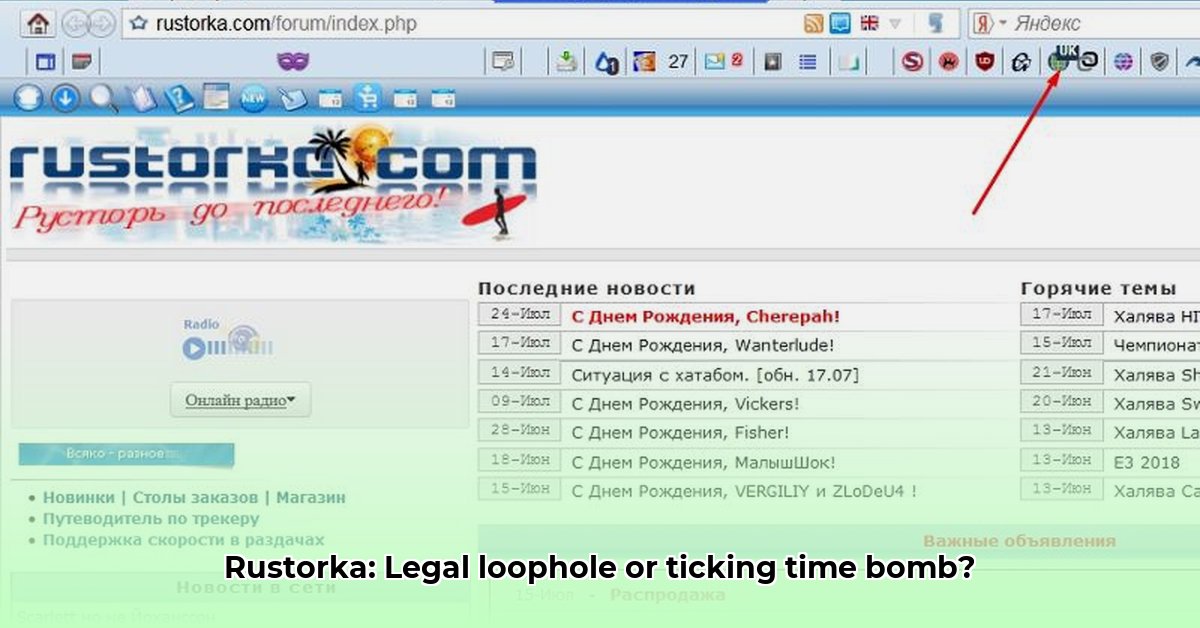
Understanding Torrent Tracking Websites
Rustorka and similar websites operate in a legal gray area. They index torrent files—digital files containing links to copyrighted material—but don't host the files themselves. This seemingly minor distinction has significant legal implications. Think of it like a library catalog: the catalog doesn't contain the books, it merely directs users to their location. This model places these indexing sites in a legally precarious position. Do they merely provide information, akin to a search engine, or are they actively facilitating copyright infringement? The answer remains complex and highly contested. For more on legal complexities around online platforms, see this recent appeal.
How Torrent Tracking Websites Function: Hash Sums and Decentralization
These websites utilize "hash sums" (unique digital fingerprints for each file) to catalog torrent files. Users search for a file's hash sum, and a torrent client then downloads the file from various users sharing it across a decentralized peer-to-peer (P2P) network—not from the indexing website itself. This architectural design is central to the legal arguments surrounding their operation. The website argues it only provides information, not the copyrighted content itself. Is this a valid defense? That's a question courts continue to grapple with.
The Legal Landscape: Intermediary Liability and International Variations
The legality of Rustorka-like websites is far from uniform globally. The concept of "intermediary liability" is crucial here. This legal principle addresses the responsibility of online platforms that facilitate access to infringing content but don't directly host it. Legal interpretations vary widely across jurisdictions, leading to inconsistent enforcement and a patchwork of laws. Some countries might aggressively pursue legal action while others may take a more lenient approach. The lack of clear legal consensus adds a layer of complexity to the issue. Many lawsuits against similar sites have yielded mixed results, highlighting the ongoing legal ambiguity.
Ethical Considerations: Copyright, Fair Use, and the Creative Industries
Beyond the legal complexities, significant ethical concerns arise. Downloading copyrighted material without permission is copyright infringement, potentially harming creators and their livelihoods. However, the ethical implications are nuanced. Where is the line between fair use and blatant copyright violation? This blurred line complicates the ethical debate. The potential consequences for artists and the creative industries are significant, necessitating a careful consideration of the ethical ramifications of using these platforms.
The Future of Torrent Tracking: Evolving Legal Frameworks and Technological Advancements
Predicting the future of Rustorka and similar sites is challenging. Several factors will shape their trajectory: evolving legal frameworks (both tightening and loosening regulations), technological advancements impacting both the ease of tracking infringement detection and anonymity tools used by users, and shifts in user behavior and attitudes towards copyright. The interplay of these factors creates an unpredictable future for these online platforms. The constant evolution of technology and legislation ensures that this situation will remain dynamic and uncertain.
Conclusion: Balancing Access and Copyright Protection
Rustorka and similar torrent tracking websites highlight a crucial tension: balancing access to information with the protection of intellectual property rights. The legal and ethical implications are multifaceted and continuously evolving. The ongoing debate centers on the interpretation of intermediary liability and the ethical responsibilities of online platforms. The future of these platforms will depend on the interaction between legal precedents, technological developments, and shifts in public perception and user behavior. The lack of clear legal consensus necessitates a balanced and nuanced approach to understanding these complex issues.
Key Takeaways:
- Torrenting technology itself isn't inherently illegal; the content shared determines legality.
- Significant legal risks exist due to potential copyright infringement and intermediary liability.
- Jurisdictional variations in laws create a complex and unpredictable legal environment.